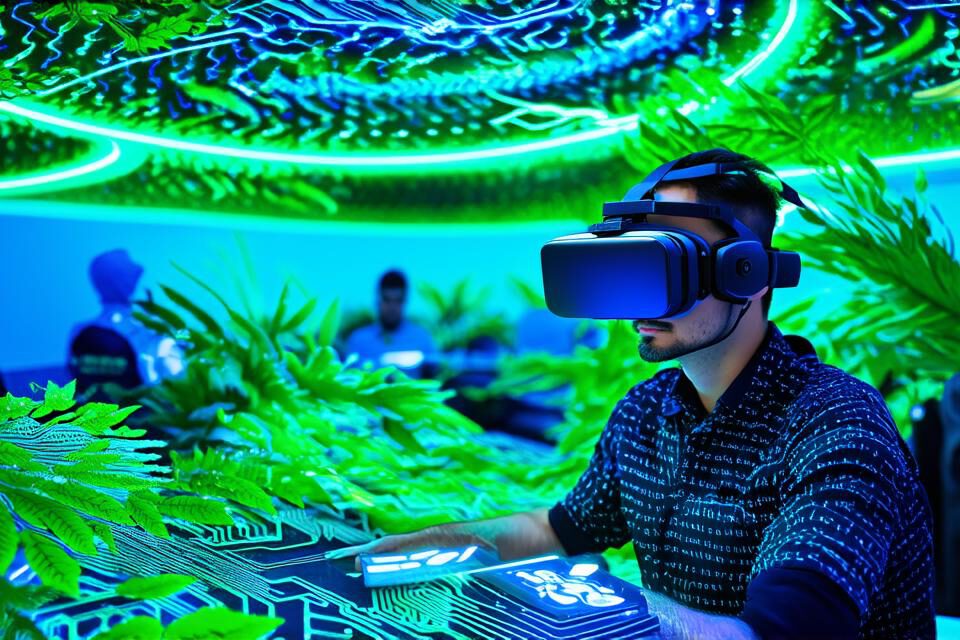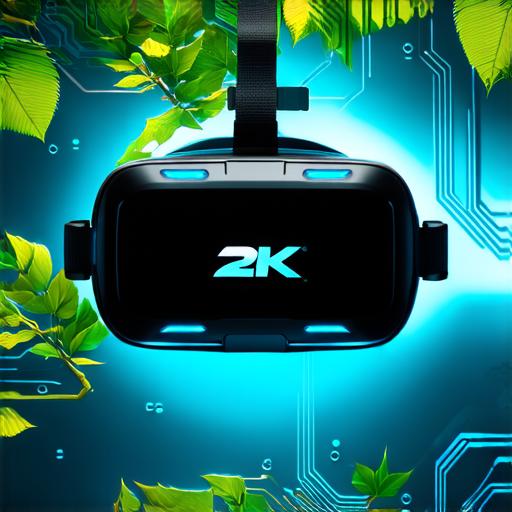What does a virtual reality developer do?

Virtual reality (VR) is becoming increasingly popular in various industries, from gaming to healthcare and education. The demand for VR developers is on the rise as companies seek to create immersive experiences that engage users and drive business growth. In this article, we’ll explore what it takes to become a successful virtual reality developer, including the skills, tools, and challenges involved in this exciting field.
Skills required for a virtual reality developer
Virtual reality development requires a unique set of skills that go beyond traditional programming. Here are some of the key skills you’ll need to succeed as a VR developer:
- Programming skills: While VR development doesn’t require knowledge of every programming language, it’s essential to have a solid understanding of at least one. Unity and Unreal Engine are two of the most popular game engines for VR development, but C and JavaScript are also widely used.
- 3D modeling: You’ll need to be proficient in 3D modeling software such as Maya, Blender, or 3DS Max to create 3D models and environments for your VR applications.
- Game design: VR development requires a strong understanding of game design principles, including user experience (UX) and user interface (UI) design. You’ll need to be able to create intuitive controls and interfaces that allow users to interact with the virtual world.
- Analytical skills: To create effective VR experiences, you’ll need to be able to analyze user behavior and preferences. This will help you make data-driven decisions about the design and functionality of your applications.
- Creativity: VR development requires a lot of creativity to come up with innovative ideas for immersive experiences. You’ll need to be able to think outside the box and push the boundaries of what’s possible in virtual reality.
- Game engines: Unity and Unreal Engine are two of the most popular game engines for VR development. Both engines provide a wide range of tools and features for creating immersive experiences.
- 3D modeling software: Maya, Blender, and 3DS Max are some of the most widely used 3D modeling software in VR development. These tools allow you to create 3D models and environments that can be imported into your game engine.
- Development kits: Every major VR platform has its own development kit, which provides tools for creating applications specifically designed for that platform. For example, the Oculus SDK is used for developing applications for the Oculus Rift, while the HTC Vive SDK is used for the HTC Vive.
- Virtual reality hardware: To test and develop your applications, you’ll need access to virtual reality hardware such as headsets, controllers, and motion tracking sensors. This will allow you to experience your creations firsthand and make adjustments as needed.
- Motion sickness: Motion sickness is a common problem for users of virtual reality, and it can be difficult to develop applications that don’t cause this issue. You’ll need to be aware of the potential causes of motion sickness and design your experiences accordingly.
- Limited hardware capabilities: VR hardware is still relatively expensive and has limited processing power compared to traditional computers. This means that you’ll need to optimize your applications to run smoothly on less powerful hardware.
- User experience: Creating a seamless and intuitive user experience in virtual reality can be challenging due to the lack of physical feedback and the unique nature of the medium. You’ll need to carefully design your interfaces and controls to ensure that users can easily interact with the virtual world.
- Development time: Virtual reality development can be time-consuming, especially when you’re working with complex technologies such as 3D modeling and game engines. You’ll need to be prepared for a longer development cycle than traditional software development.
- Gaming: Virtual reality gaming has become increasingly popular, with companies such as Oculus, HTC, and Sony releasing their own VR consoles. Game developers are using tools like Unity and Unreal Engine to create immersive gaming experiences that transport users into new worlds.
- Healthcare: Virtual reality is being used in healthcare to treat a variety of conditions, including PTSD, anxiety disorders, and chronic pain. By creating realistic simulations of real-world environments, VR can help patients overcome their fears and cope with physical pain.
- Education: Virtual reality is also being used in education to provide students with immersive learning experiences. For example, virtual field trips allow students to explore historical sites or natural wonders without ever leaving the classroom.
- Improved hardware: As VR hardware becomes more powerful and affordable, developers will be able to create more realistic and immersive experiences. We can also expect to see new technologies emerge, such as haptic feedback and eye-tracking.
- More diverse applications: Virtual reality is already being used in a variety of industries, but we can expect to see even more applications emerge in the future. For example, VR could be used for training pilots or simulating surgical procedures.
- Increased accessibility: As virtual reality technology becomes more mainstream, we can expect to see it become more accessible to everyone, not just early adopters. This will lead to more widespread adoption and use of VR applications.

Tools used by virtual reality developers
As a VR developer, you’ll need to use a variety of tools to create your applications. Here are some of the most commonly used tools:
Challenges faced by virtual reality developers
Virtual reality development can be challenging due to the unique requirements of the medium. Here are some of the challenges that VR developers often face:
Real-life examples of virtual reality development
Virtual reality development is being used in a variety of industries, from gaming to healthcare and education. Here are some real-life examples of how VR development is being applied:
Future of virtual reality development
Virtual reality technology is constantly evolving, and we can expect to see even more advancements in the future. Here are some trends that we can expect to see in virtual reality development:
Conclusion
Virtual reality development is an exciting field that requires a unique set of skills and tools. By becoming proficient in programming, 3D modeling, game design, and analytics